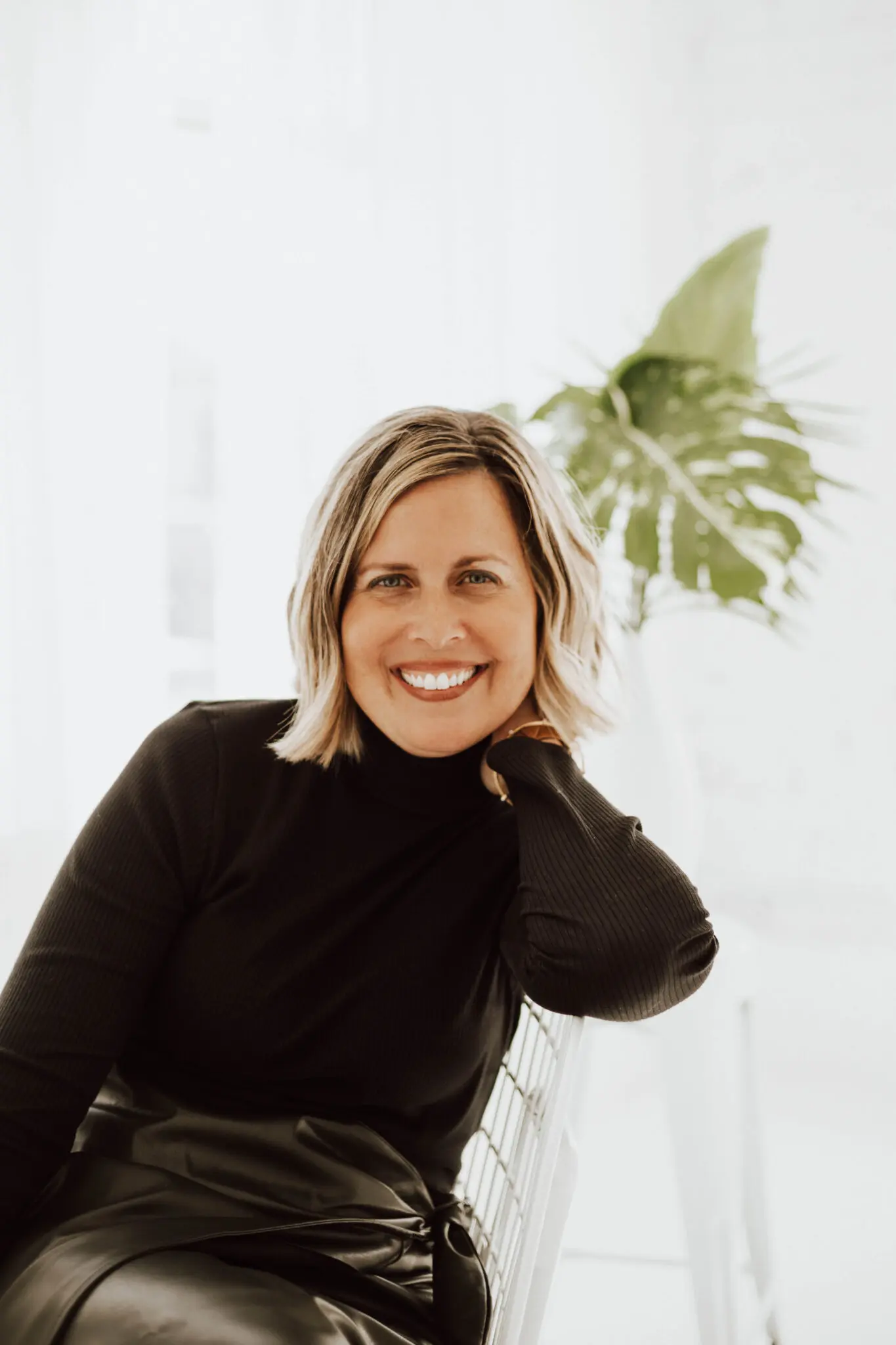Below is a conversation with Gwynn Lamm, MA, LPCC, a clinician with Learn2Thrive, a private mental health practice located in Cincinnati, Ohio.
1. Gwynn, you have established a thriving practice of women who are pursuing healing and growth every day. Even though we’re all unique, I’m sure you see patterns specific to women. Will you share a few of those with us?
“I definitely see that woman, myself included, take on more than they need to. My female clients tend to feel responsible for not just their own health and healing, but also the health and healing of their people (spouses, kids, close friends). The pattern that tends to emerge is this; though we may be seeking growth for ourselves, it comes last (or at least a distant second) after everyone else is ok.”
2. We’re celebrating Mother’s Day soon and it’s time to remember and honor the fact that mothers are changing the world every day! Grandmothers, single-mothers, biological mothers, stepmothers, foster mothers, adoptive mothers, spiritual mothers, and grieving mothers have an impact that is powerful and lasting. What’s one thing you want mothers to know and remember?
“You are allowed to put yourself first! You deserve a seat at the table! Self-care and loving on yourself is not selfish, it’s necessary. Oftentimes women think that if they do something that brings them joy and adds abundance to their lives, they are being selfish, when actually the opposite is true. We’ve all heard that you can’t pour from an empty cup and it’s really true. If we don’t take care of ourselves first, how will we have the energy or even desire to take care of other people. By practicing healthy self-care on a daily basis, we can show up better for the people we love, AND we’re modeling for them how to do the same for themselves. Taking care of yourself and other people is not an “either/or.” It’s a “both/and.”
3. One area that research tells us is especially dominant for women and mothers today is carrying the “mental load.” What does that look like in women’s lives?
“It looks like not just doing practical things for others, but taking on their worry, stress, schedules, emotions, invisible work, to-dos, etc., etc. So many women come into my office and tell me that their brains won’t stop. That when they’re trying to fall asleep at night, all of the thoughts come rushing in. They lie awake thinking about all the things they didn’t get done or, better yet, the things they didn’t do right…that’s a fun one! They feel burdened by the mental load. We carry that stress in our bodies. It starts in our brains, seeps into our emotions, and settles into our nervous systems. Then we’re tired, our bodies are tight, we have headaches and digestive issues, we struggle to concentrate and be productive. And that’s just in the short term. So yes, we carry the mental load of ourselves and our families, but that mental load becomes so much more if we’re not letting some of it go. “
4. How does carrying the “mental load” lead to mental and emotional problems for women?
“When we hold onto the stress, it can often become issues with anxiety and depression. These are the most common things I see from the mental load. It’s impossible to do it all and to do it all perfectly. So what we tell ourselves is that we’re “not enough.” We can convince ourselves that our friends and neighbors are doing it perfectly. Just a heads up, they’re not!”
5. How do you guide your clients towards lightening their mental load?
“We must start with healthy boundaries. This means identifying what is mine to be responsible for and what belongs to other people. This can be difficult when it comes to our children because they are our responsibility. While this is true, they are often more self-sufficient than we give them credit for. We can be there for them while not taking on their stuff as our own. Here’s the example I give my clients…if you come into my office crying and telling me about a heart break you just had and I started sobbing, what would that be like for you? Everyone says it would be super weird because they are aware that the problem is THEIRS, not mine and I would be acting as if it was mine. Yet this is what we do with our children (or a lot of people in our lives). We act like their problems are ours, and they’re not. Healthy boundaries help you to be there for you kids, not carry their mental load.”
“Next is recognizing you have limits and honoring them. Carrying a heavy mental load can lead to burn-out and this could look a lot of different ways. If you want to continue to be present for others, you have to learn to say no, to set boundaries, to take care of your self, so that you can continue to show up for others. Give age appropriate responsibility to your kids, have honest conversations with your spouse about what help you need and want from them, tell your boss that you need extra support on the big project just put on your plate, take time for yourself, let go of the idea that others will judge you or you’ll be letting them down if you don’t do it all.”
“It is also important to recognize the voice in our head. We all have that critical voice that talks to us and tells us that we’re not enough and that we “should” be doing more. Trust me, that voice is not your own. You have the ability to control your thoughts, so it is important to identify negative thinking and challenge it. If the critical voice is telling you that you didn’t do it right and the world will fall apart if you don’t run yourself into the ground, pause and ask yourself what you WANT to believe in this moment. Sometimes it’s helpful to ask what your best friend would tell you. Challenge the negative thoughts and redirect them toward healthier ones that allow you to lighten the mental load you are carrying.”
Created by: Gwynn Lamm, MA, LPCC & Emily Baumann, PCC


